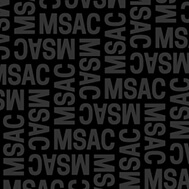About the Artist
Joseph J. Capista’s poems have appeared in journals such as Ploughshares, Slate, and The Georgia Review. A two-time recipient of the Maryland State Arts Council's Individual Artist Award, Capista has also received grants from the Bread Loaf Writers' Conference and the Sewanee Writers' Conference. Capista has assisted with the Baltimore Writers’ Conference and has studied W.B. Yeats through the NEH. His prose has appeared in the Baltimore Sun.
Capista teaches creative and expository writing at Towson University. His work in education has taken him into group homes, high schools, universities, and a state penitentiary. He holds an MFA in Poetry from Warren Wilson College.
Artist's Statement
I write poems because I am obsessed with making things—with making objects of art—out of language.
Each poem’s genesis is sound, some sonic interplay aglint with possibility. My phone houses a running list of “poem notes”—inauspicious kissers = jellyfish or petal’s edge—scraps and incidentals to be culled and re-contextualized in the act of composition. Form, narrative, figuration: these aspects of the poem follow, lending shape and structure to what began as sonic phenomenon.
My medium is the English language. How necessary, then, I handle language as a painter handles oils. We acquire language with little fanfare; from tax returns to cell texts, we traffic in it daily with rote insouciance. Reckoning with language as an artistic medium means fashioning from such earthly material something akin to the ethereal. Interplay of Germanic and Latinate diction, attention to syntactical construction, juxtaposition of linguistic register, exploitation of lyric structure: these concern me as a writer of poems, and it is their manipulation in lineated speech that my language behaves as art.
While craft-minded, I work in composition to forget craft and follow instead a deep felt-knowledge gleaned from years of reading and study. Often, this means relinquishing control. Distinctions between “formal verse” and “free verse” are to me irrelevant, as in the process of composition each poem occasions its form. I’m bewitched by the capacity of tone and lyric structure to complicate seemingly-simple utterances. Revision, the heart of my writing practice, means winnowing, scoring, and recasting language. It’s a cruel and liberating process I have learned to trust, and my best moments on the page often follow the “letting go” of intentionality, the allowing of language itself to direct my navigation of technical problems.
Exquisite misbehavior, delicious myopia, ambient astonishment: these are what my poems are “for.” Even when eschewing narrative, my work pursues moments of lucid transcendence evocative of our English and French lyric traditions. Yes, my poems circle back to notions of love, death, family, and self—our usual and inescapable mysteries. Too, I’m preoccupied with the very act of making, with understanding my art though my art, and my poems frequently investigate the creative impulse. Growing in this vocation has meant for me growing as both a thinker and an aesthetician. The poem, that nexus of thought and form, is a way of thinking about something, is itself an idea. Shaping language into an idea the reader might meaningfully experience and re-experience—my work as a writer of poems—remains for me poetry’s most vexing and acute pleasure.

